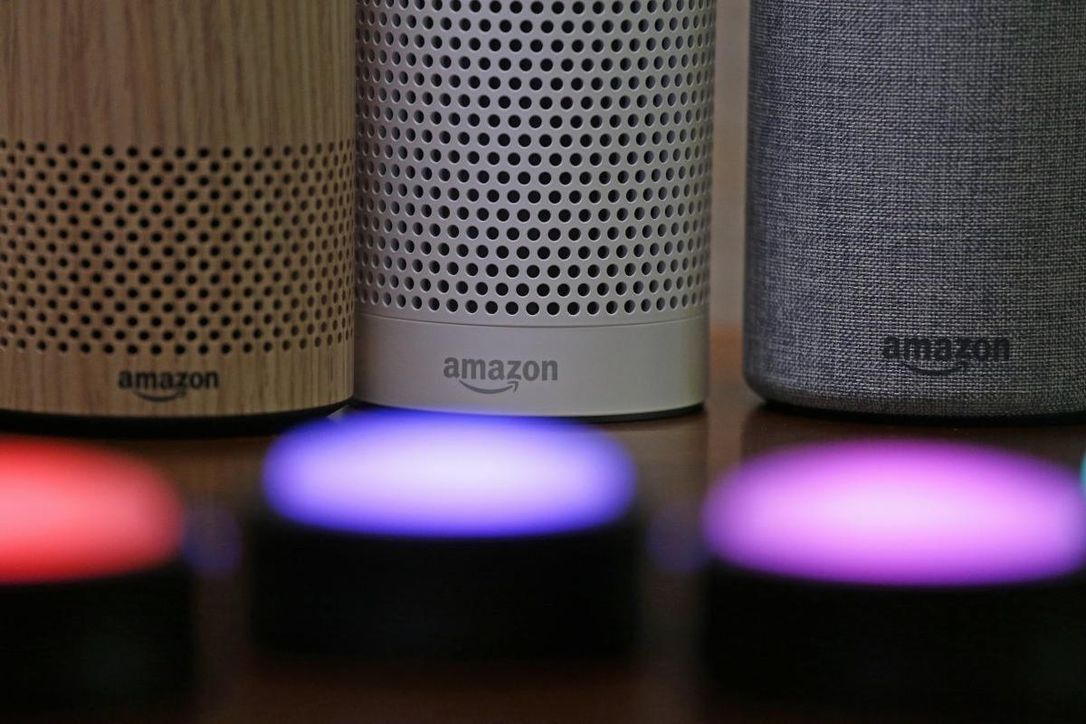Harley Finkelstein orders diapers for his 2-year-old daughter using a voice command, but he still likes going into Harry Rosen to buy his signature black T-shirts — and that, says the chief operating officer of Shopify, is the future of retail.
While new technology is bringing shopping into our homes using augmented reality that allows us to project an image of say, a sofa, into our own living room, consumers still like to shop in bricks-and-mortar stores and will continue to do so, Finkelstein told retailers at the 2018 Retail Council of Canada Conference on Tuesday.
Voice assistants such as Alexa on Amazon’s Echo smart speaker may be the next big thing in retail, but other retail experts see personalization as the key to future success. (The Associated Press File Photo)
More than 2,500 retailers are expected to attend the two-day event at the Congress Centre.
“Consumers still want to feel an emotional connection to what they’re buying,” said Finkelstein.
Finkelstein said that he enjoys the convenience of being able to order diapers simply by asking his Alexa home assistant. But when it comes to buying clothes, he prefers shopping in person at Harry Rosen because that transaction has been personalized: a sales associate assembles a collection of clothing and accessories based on what he knows Finkelstein likes, from previous visits.
Retailers need to get better at offering customers a greater level of personalization online as well, said Eric Morris, director, retail, at Google Canada.
Too many retailers are still offering the same landing page experience to all customers and sending them all the same email offers when personalization is possible and could yield better results, he pointed out.
Morris believes voice commerce — for example, ordering through Google home assistant — is about to take off, disrupting existing channels in a meaningful way.
“Voice is that next major shift. Voice is to mobile what mobile was to the web,” Morris told attendees.
Both Finkelstein and Morris agreed that one-click checkout has become an expectation among consumers, who are increasingly resistant to having to enter their address and postal code and credit card information to buy online. They want it to be seamless, the way it is on Amazon, or Uber.
“Uber (and others) have set an unbelievable bar and that is the standard we are all being held to,” said Morris.
Retail analyst Deborah Weinswig of Fung Business Intelligence Centre, predicted more partnerships between mall-based retailers and e-commerce merchants as bricks-and-mortar businesses try to drive sales and online retailers seek out more ways to interact with consumers.
“Everyone is working together in a more collaborative way,” said Weinswig.
The opportunity to increase online sales remains vast — global e-commerce will nearly double from 2017-2020 to $4 trillion, according to eMarketer research cited by Finkelstein.
But according to an American Express survey presented at the conference Tuesday, 97 per cent of retailers surveyed agreed improving the in-store experience is important and 69 per cent agreed investing in new technology is integral to driving business success — but only 29 per cent were interested in investing in new technologies like data personalization. Fourteen per cent were looking to artificial intelligence or augmented reality to provide better in-store experience.
The sixth annual Canadian Retail Insights Report was conducted by the Nielsen Company on behalf of American Express in March and April among 375 Canadian businesses and has a margin of error of plus or minus 5.1 per cent.
The conference wraps up Wednesday.
TOP STORIES, DELIVERED TO YOUR INBOX.


